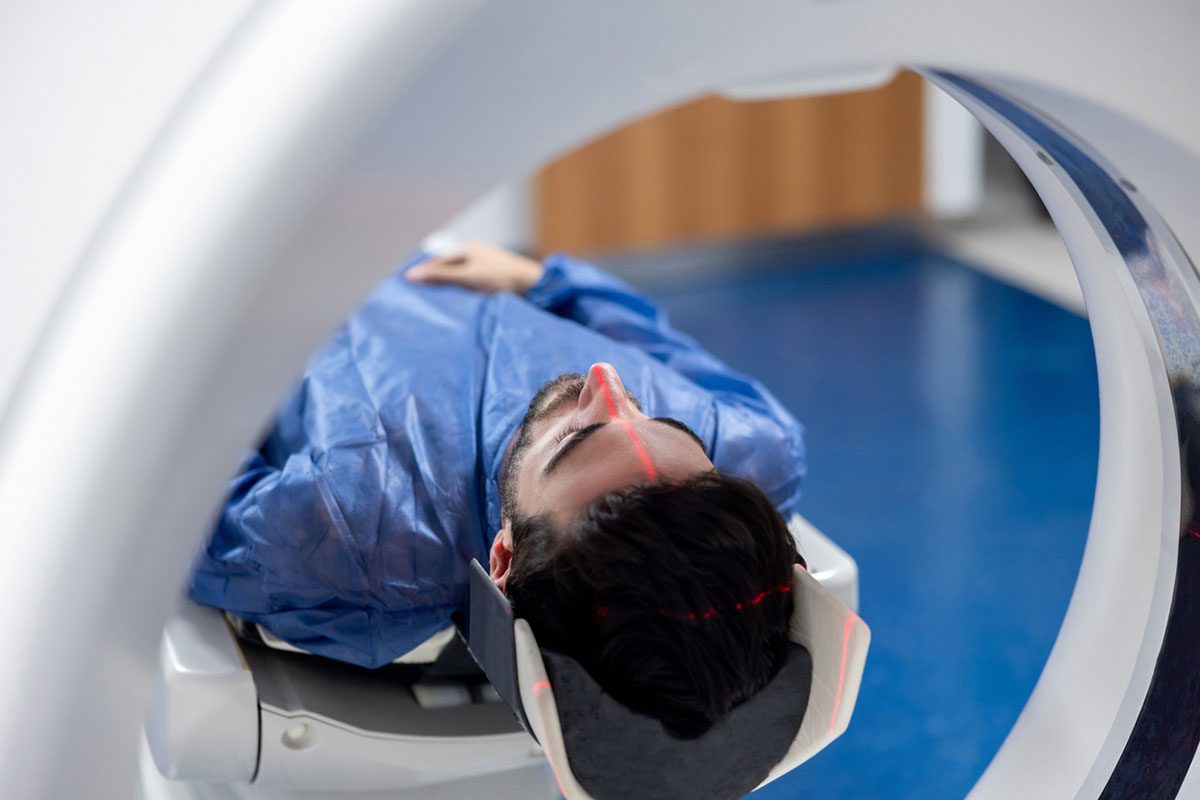Prim Care Companion CNS Disord 2023;25(2):22cr03283
To cite: Gama Marques J. Diogenes syndrome in a homeless man with the Westphal variant of Huntington’s disease. Prim Care Companion CNS Disord. 2023;25(2):22cr03283.
To share: https://doi.org/10.4088/PCC.22cr03283
© Copyright 2023 Physicians Postgraduate Press, Inc.
aConsulta de Esquizofrenia Resistente, Hospital Júlio de Matos, Centro Hospitalar Psiquiátrico de Lisboa, Lisbon, Portugal
bClínica Universitario de Psiquiatria e Psicologia Médica, Faculdade de Medicina, Universidade de Lisboa, Lisbon, Portugal
*Corresponding author: João Gama Marques, MD, MSc, PhD, Pavilhão Salgado D’Araújo, Hospital Júlio de Matos, Centro Hospitalar Psiquiátrico de Lisboa, Avenida do Brasil, 53, 1749-002 Lisbon, Portugal ([email protected]).
Diogenes syndrome is a behavioral disorder usually described in individuals in a neglected physical state living in extreme squalor, unhygienic conditions, and self-imposed isolation, who often refuse external help and have a tendency to accumulate unusual objects.1 In a systematic review of the literature regarding Diogenes syndrome, 19% of cases were associated with dementia, and 16% of the patients were aged < 65 years.2
Huntington’s disease is an autosomal dominant progressive disease caused by a cytosine-adenine-guanine (CAG) repeat expansion in the huntingtin (HTT) gene, characterized by the triad of choreic abnormal movements, cognitive decline, and psychiatric disturbances.3 The juvenile variant of Huntington’s disease, with onset before age 20 years, accounts for up to 10% of all cases, but only 2% have symptoms before age 10 years, which is known as the Westphal variant.4 The Westphal variant of Huntington’s disease is a distinct clinical entity characterized by childhood onset and a rigid-hypokinetic syndrome.5
Here, a case report is presented of a young homeless man with Diogenes syndrome, secondary to dementia due to the Westphal variant of Huntington’s disease, who was previously diagnosed with depression with psychotic symptoms.
Case Report
A 35-year-old Black man living homeless in an urban area for the last 7 years was admitted to the psychiatry emergency department for social withdrawal and extreme self-neglect. He had been found in the street sleeping near a metropolitan train station, with very poor hygiene and pungent stench and covered in his own urine and fecal matter. He was in complete apathy with depressive mood and blunted affect. He had facial motor stereotypies, psychomotor retardation, diffuse muscular rigidity, and choreiform movements of limbs, and his gait was ataxic with wide-based station. Because of inhibited speech, it was hard to dismiss hallucinations of any kind, but he admitted to being followed by a group of people in a persecutory delusional fashion.
According to family members, his behavior had started to deteriorate 9 years ago at age 26, with obsessive hyperreligiosity, perseverating speech, and compulsive hoarding, resulting in syllogomania. After 2 years of social breakdown, he left home and became a homeless runaway. In his clinical records, we found a single psychiatric admission 3 years earlier with information pointing to a diagnosis of depression with psychotic symptoms. The patient had previously been on lorazepam, escitalopram, and olanzapine, but full recovery was never achieved due to an insufficient gain in insight and poor adherence to clinical treatments and social support. He suffered from child abuse during infancy and sustained a firearm injury with a shotgun at age 10 years that resulted in orthopedic intervention and a crippled right arm. An undisclosed learning disability was obvious during adolescence; he did not pass the ninth grade, leaving school at age 18 years. He had 6 brothers; one was diagnosed with chronic psychosis, while another died by suicide. His father suffered from depression and also committed suicide at a young age. One paternal uncle suffered from depression and an undisclosed movement disorder.
Blood tests revealed a folate deficiency, suggesting chronic poor food intake. Urine drug tests were negative. Chest radiograph was within normal limits. Electrocardiography showed a cardiac left ventricular hypertrophy. Brain magnetic resonance imaging was contraindicated due to metal shot pellets in his right arm. Electroencephalography, unfortunately, was also not performed. However, a repeat brain computed tomography scan was within normal limits. The neuropsychological assessment documented temporal and self-disorientation; weak voice with imprecise, vague, and low-volume speech plus lack of initiative for talking; high dispersion of attention; low levels of working memory with short and long accentuated memory deficits; and poor abstraction capacity for verbal and nonverbal stimuli. Genetic testing for Huntington’s disease was positive, with above-normal CAG trinucleotide repeat expansion in the gene coding for the HTT protein in the short arm of chromosome 4.
The patient received new diagnoses of hoarding disorder and secondary psychotic syndrome in dementia due to Huntington’s disease, hypokinetic-rigid syndrome, Westphal variant (ICD-11 codes 6B24, 6E61, 6D85). He was sent to a rare disease unit, with specialized dementia care for support in activities of daily life and cognitive rehabilitation therapy. Genetic counseling was recommended to family members. Eighteen years after the first psychiatric symptoms, the patient was seen with mild dysphagia, moderate dementia, and severe muscular rigidity. He has been treated with mirtazapine 30 mg for depression, olanzapine 20 mg for psychosis, and tetrabenazine 25 mg for chorea. He has been under good care and has not become homeless again at the time of this writing.
Discussion
Psychiatric symptoms are highly prevalent in neurologic conditions and are a major source of disability and diminished quality of life, representing the target of treatment interventions that may significantly decrease the suffering they generate.6 Many of the rare inherited disorders of the central nervous system have traditionally neurologic manifestations and classic psychiatric symptoms as well, as is recognized in Huntington’s disease, that are commonly associated with depression and sometimes with psychosis.7 There is, of course, much to be gained from so-called neuropsychiatry, the joint work of neurologists and psychiatrists; however, I do believe there is an urgent need to rescue neurology patients from psychiatry to obtain better outcomes for patients.
In 15 years of clinical practice, this is the second patient I have seen due to psychosis secondary to undiagnosed Huntington’s disease.8 On the other hand, this is also the second patient coming to me with Diogenes syndrome secondary to a previously undisclosed central nervous system illness.9 This type of nosologic mistake can be avoided if a better diagnostic approach is completed at a primary care level.
When treating a new patient with chronic psychosis, clinicians should take extra care when making the differential diagnosis, as an organic cause is often overlooked. In my experience in a tertiary care hospital (an old state asylum), 25% of what once seemed to be schizophrenia was indeed psychosis secondary to some undisclosed organic cause.10
On the other hand, when caring for homeless individuals with psychosis, clinicians should be especially careful regarding the differential diagnosis, as an organic cause is also underestimated. In my experience with a homeless outreach psychiatric engagement protocol in a metropolitan European city, a prevalence of 17% of the so-called organic psychosis was found.11
Homeless psychotic patients have been described as “difficult”12 and “super difficult” patients,13 often nameless and helpless,14 with poor general health15 and a high prevalence of comorbidities.16 They suffer from stigma and neglect associated with both hospital mortification and community shelterization.17 Sometimes clinicians may fall into the trap of cynicism or therapeutic nihilism when dealing with these patients, but all of them deserve a scientific yet humane approach to care, looking for the best possible diagnosis, theragnosis, and prognosis.
Published online: March 2, 2023.
Relevant financial relationships: None.
Funding/support: None.
Acknowledgments: The author thanks Luís Espírito Santo, a member of the homeless outreach team at the Cidade Segura, Associação de Assistência de São Paulo, Lisbon, Portugal, who took the patient to the emergency department, and Marisa Taron, PhD, from the Psychiatry Emergency Department of Hospital São José, Centro Hospitalar Universitário Lisboa Central, Lisbon, Portugal, who transferred the patient to our ward. The acknowledged individuals report no conflicts of interest related to the subject of this report.
Patient consent: Permission was obtained from the patient to publish this case report, and information was de-identified to protect anonymity.
References (17)

- Cipriani G, Lucetti C, Vedovello M, et al. Diogenes syndrome in patients suffering from dementia. Dialogues Clin Neurosci. 2012;14(4):455–460. PubMed CrossRef
- Almeida R, Ribeiro O. Síndrome de Diógenes: revisão sistemática da literatura. Rev Port Sau Pub. 2012;30(1):89–99. CrossRef
- Rasmussen A, Macias R, Yescas P, et al. Huntington disease in children: genotype-phenotype correlation. Neuropediatrics. 2000;31(4):190–194. PubMed CrossRef
- Quarrell O, O’Donovan KL, Bandmann O, et al. The prevalence of juvenile Huntington’s disease: a review of the literature and meta-analysis. PLoS Curr. 2012;4:ef3. PubMed CrossRef
- Töpper R, Schwarz M, Lange HW, et al. Neurophysiological abnormalities in the Westphal variant of Huntington’s disease. Mov Disord. 1998;13(6):920–928. PubMed CrossRef
- Lyketsos CG, Kozauer N, Rabins PV. Psychiatric manifestations of neurologic disease: where are we headed? Dialogues Clin Neurosci. 2007;9(2):111–124. PubMed CrossRef
- Butler C, Zeman AZ. Neurological syndromes which can be mistaken for psychiatric conditions. J Neurol Neurosurg Psychiatry. 2005;76(suppl 1):i31–i38. PubMed CrossRef
- Gama Marques J, Carnot MJ. Huntington’s disease in a patient with 15-year history of Capgras delusion misdiagnosed as paranoid schizophrenia. Gen Hosp Psychiatry. 2016;39:97–98. PubMed CrossRef
- Gama Marques J. Diogenes, Plyushkin or Havisham syndrome? syllogomania (hoarding with squalor) secondary to left cerebellopontine angle giant benign transitional meningioma. Prim Care Companion CNS Disord. 2022;24(5):21cr03219 PubMed CrossRef
- Gama Marques J. Organic psychosis causing secondary schizophrenia in one-fourth of a cohort of 200 patients previously diagnosed with primary schizophrenia. Prim Care Companion CNS Disord. 2020;22(2):19m0254 CrossRef
- Monteiro Fernandes A, Gama Marques J, Bento A, et al. Mental illness among 500 people living homeless and referred for psychiatric evaluation in Lisbon, Portugal. CNS Spectr. 2021:1–10. PubMed CrossRef
- Carnot MJ, Gama Marques J. ‘Difficult patients’: a perspective from the tertiary mental health services (‘Doentes Difíceis’: Uma Perspectiva dos Cuidados Terciários em Saúde Mental). Acta Med Port. 2018;31(7–8):370–372. PubMed CrossRef
- Gama Marques J. Super difficult patients with mental illness: homelessness, marontology and John Doe syndrome. Acta Med Port. 2021;34(4):314. PubMed CrossRef
- Gama Marques J, Bento A. Homeless, nameless and helpless: John Doe syndrome in treatment resistant schizophrenia. Schizophr Res. 2020;224:183–184. PubMed CrossRef
- Gama Marques J. Pellagra with Casal necklace causing secondary schizophrenia with Capgras syndrome in a homeless man. Prim Care Companion CNS Disord. 2022;24(2):21cr03014. PubMed CrossRef
- Gama Marques J, Bento A. Marontology: comorbidities of homeless people living with schizophrenia. Acta Med Port. 2020;33(4):292. PubMed CrossRef
- Gama Marques J. Mortification and shelterization of homeless psychiatric patients in Portugal. Eur Rev Med Pharmacol Sci. 2022;26(5):1431–1432. PubMed
Enjoy this premium PDF as part of your membership benefits!





